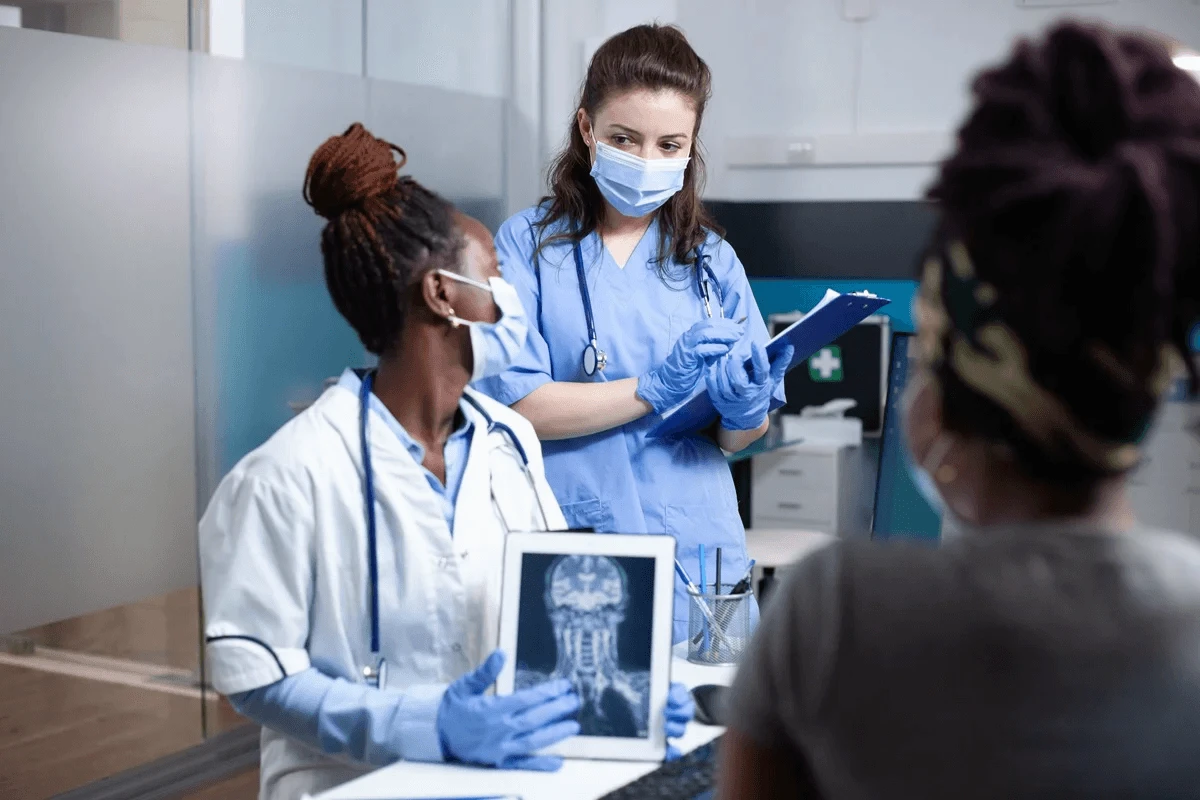Medical assistants play a crucial role in the healthcare industry, providing support to doctors, nurses, and other medical professionals. Their responsibilities vary depending on the healthcare setting, but they generally combine clinical and administrative tasks to ensure the smooth operation of medical offices, clinics, and hospitals. This comprehensive guide will explore the diverse duties of medical assistants, their required skills, and how to pursue a career in this essential field.

Clinical Responsibilities of Medical Assistants
Medical assistants perform a wide range of clinical tasks that directly support patient care. These tasks can vary significantly based on the specific medical setting and the regulations of the state in which they work. Here are some common clinical duties:
1. Taking Patient Histories and Vital Signs
Medical assistants are often the first point of contact for patients. They record patients’ medical histories, vital signs (such as blood pressure, pulse, and temperature), and any symptoms they report.
2. Preparing Patients for Examinations
They prepare patients for examinations by explaining procedures, providing gowns, and positioning them appropriately. This helps doctors and nurses conduct examinations more efficiently.
3. Assisting with Procedures
As one of the professionals in the healthcare industry, medical assistants are responsible in assisting doctors and nurses during various medical procedures, such as drawing blood, administering injections, and performing basic laboratory tests.
4. Collecting and Handling Lab Specimens
They collect samples, such as blood, urine, and tissue, and ensure these specimens are properly labeled and sent to laboratories for analysis.
5. Performing Basic Laboratory Tests
Some medical assistants are trained to perform basic laboratory tests on-site, such as blood glucose measurements, urinalysis, and pregnancy tests.
6. Administering Medications
Depending on their training and state regulations, medical assistants may administer medications, including oral, topical, and injectable drugs, under the supervision of a physician.
7. Sterilizing Medical Instruments
Maintaining a sterile environment is critical in healthcare. Medical assistants are responsible for cleaning, sterilizing, and preparing medical instruments for use.
8. Providing Wound Care
They may provide basic wound care, such as cleaning and dressing wounds, under the guidance of a healthcare provider.

Administrative Responsibilities of Medical Assistants
In addition to clinical tasks, medical assistants handle various administrative duties that ensure the efficient operation of healthcare facilities. These tasks include:
1. Scheduling Appointments
Medical assistants schedule patient appointments, manage calendars for healthcare providers, and handle rescheduling and cancellations.
2. Managing Patient Records
They maintain and update patient records, ensuring that all information is accurate and up-to-date. This includes entering data into electronic health record (EHR) systems.
3. Billing and Coding
Medical assistants often handle billing and coding tasks, which involve preparing and submitting insurance claims, coding medical procedures, and managing patient billing.
4. Answering Phones and Greeting Patients
They are responsible for answering phone calls, addressing patient inquiries, and greeting patients as they arrive at the office.
5. Handling Correspondence
Medical assistants manage correspondence, including sending and receiving faxes, emails, and letters. They also communicate with other healthcare facilities and insurance companies.
6. Inventory Management
They keep track of medical supplies and equipment, ensuring that the office is well-stocked and that inventory levels are maintained.
7. Insurance Verification
Medical assistants verify patients’ insurance coverage, obtain authorizations, and handle any necessary paperwork related to insurance claims.
Skills Required for Medical Assistants
To perform their duties effectively, medical assistants need a combination of clinical and administrative skills. Key skills include:
1. Clinical Skills
- Proficiency in taking vital signs, administering medications, and performing basic laboratory tests.
- Knowledge of medical terminology, anatomy, and physiology.
- Ability to assist with medical procedures and provide patient care.
2. Administrative Skills
- Strong organizational skills for managing patient records, scheduling appointments, and handling billing.
- Proficiency in using electronic health record (EHR) systems and medical billing software.
- Excellent communication skills for interacting with patients, healthcare providers, and insurance companies.
3. Interpersonal Skills
- Compassion and empathy for working with patients.
- Strong customer service skills to ensure a positive patient experience.
- Ability to work as part of a healthcare team.
4. Attention to Detail
- Precision in recording patient information and managing medical records.
- Accuracy in billing and coding tasks to ensure proper reimbursement.
5. Technical Skills
- Familiarity with medical equipment and instruments.
- Competence in using office software, such as Microsoft Office and EHR systems.

How to Become a Medical Assistant
Becoming a medical assistant typically involves completing a postsecondary education program and obtaining certification. Here are the general steps:
1. Complete a Medical Assisting Program
Enroll in an accredited medical assisting program, which can be found at community colleges, vocational schools, and technical institutes. These programs usually take one to two years to complete and result in a certificate or associate degree.
2. Gain Hands-On Experience
Many programs include clinical internships or externships, providing hands-on experience in a healthcare setting. This practical training is essential for developing clinical skills.
3. Obtain Certification
While certification is not always required, it can enhance job prospects and credibility. Common certifications include the Certified Medical Assistant (CMA) from the American Association of Medical Assistants (AAMA) and the Registered Medical Assistant (RMA) from the American Medical Technologists (AMT).
4. Seek Employment
After completing education and obtaining certification, begin seeking employment in various healthcare settings, such as hospitals, clinics, private practices, and outpatient care centers.
5. Continuing Education
Medical assistants are encouraged to pursue continuing education to stay current with advancements in the field and maintain their certification.
Career Outlook for Medical Assistants
The demand for medical assistants is expected to grow significantly in the coming years. According to the U.S. Bureau of Labor Statistics (BLS), employment of medical assistants is projected to grow 14 percent from 2022 to 2032, much faster than the average for all occupations. This growth is driven by an aging population, increased demand for healthcare services, and the expansion of healthcare facilities.
Medical assistants play a vital role in the healthcare industry, providing essential support to medical professionals and ensuring the efficient operation of healthcare facilities. Their diverse responsibilities, ranging from clinical tasks to administrative duties, make them indispensable members of the healthcare team. By developing the necessary skills and obtaining proper training and certification, you can pursue a rewarding career as a medical assistant. Whether you are starting your career or looking to advance in the healthcare field, the role of a medical assistant offers numerous opportunities for growth and professional development.

Start Your Journey as a Medical Assistant with Resume Professional Writers
Ready to elevate your career as a medical assistant? Our professional resume writing services are designed specifically for healthcare professionals. Our experienced medical resume writers can help you craft a resume that highlights your unique skills and experiences. Don’t miss out on the opportunity to make a lasting impression. Get your medical resume written by our experts and sign up for a free resume review today.
If you’re looking for resume writing services in other industries, visit our resume writing services to find the right solution for your career needs. Unlock your full potential and take the first step toward a successful career in healthcare and beyond.








